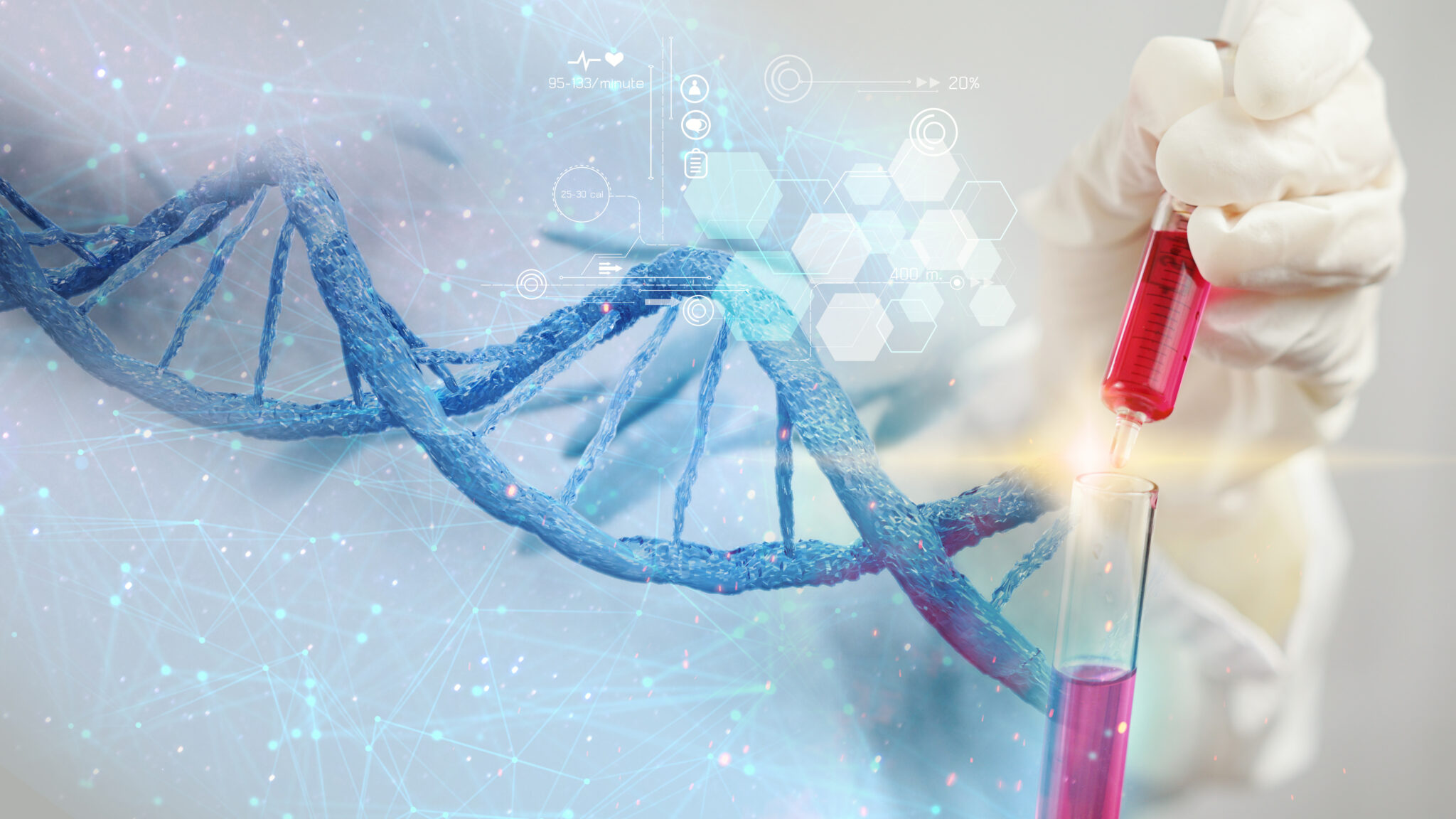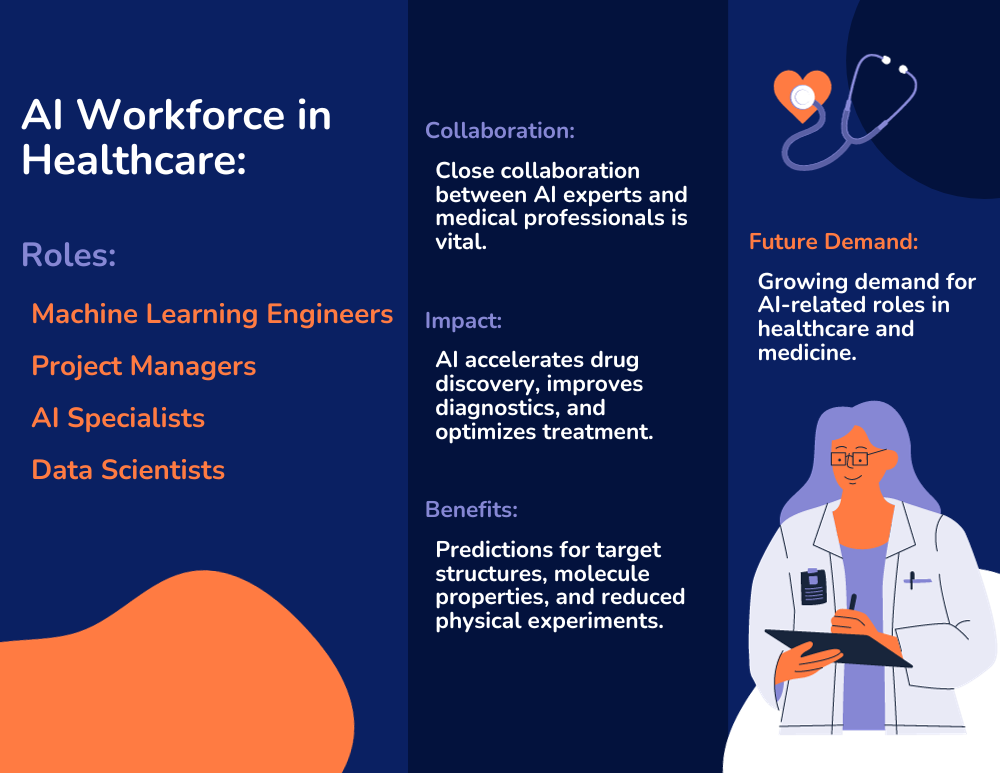AI Drug Discovery: A Revolution Already Underway

Human civilisation has been through waves of disruption driven by catalysts from the printing press to electricity to the internet. It now seems probable however that artificial intelligence (AI) will be transformative on an entirely different scale. One element of these changes is set to be the turbocharging of science, including the revolutionization of drug discovery.
Debate around the potential benefits and dangers of AI rage on. Historian and author Yuval Noah Harari sits firmly on the concerned side of the argument, recently arguing that, “This is the end of human-dominated history. History will continue but with someone else in control.” He goes on, “maybe they’ll solve cancer and climate change,” but warns that we underestimate at our peril the risks that the actions of these new super intelligences will not be entirely benign.
Slaves or masters of the algorithm
While we wait to find out how nefarious or not our new digital overlords may be, it seems likely that, either way, they will help cure cancer, and a host of other diseases and medical conditions. AI is already being deployed in a range of healthcare settings, though development is still in its infancy.
In a paper published this summer by Qureshi et al titled ‘AI in drug discovery and its clinical relevance’, the authors explain: “Machine learning algorithms can analyse various types of data, including gene expression profiles, protein-protein interaction networks, and genomic and proteomic [large-scale study of proteins] data, to identify potential targets that are likely to be involved in disease pathways.” The paper also notes that only 3,000 of the 20,000 known proteins in the human body have been even identified as potential targets for pharmaceutical solutions.
Saving time, money and lives
Drug discovery is a notoriously long and costly process that can run to more than a decade and budgets in the billions for the most complex therapies; added to which, many new drugs never make it to market. Indeed, such R&D expenditure is the go-to response from the pharma industry whenever they are criticised for charging what seem to be exorbitant sums for treatments. AI is showing considerable promise in cutting both cost and time.
In addition to identifying new proteins and molecules to target for therapies, AI can also predict the structures of those targets and so accelerate the development of compounds that will bind to them. AI is already being used to generate completely new promising molecules for use in treatments, and predicting the key properties of them and existing molecules. Meanwhile, simulations of drug molecule testing done on computers utilising AI can eliminate or hugely reduce the need for physical experiments and trials. AI can even be used to test compounds that have yet to be created in the physical world.
The research arm of investment bank Morgan Stanley predicted late last year that just “modest improvements in early-stage drug development success rates enabled by the use of artificial intelligence and machine learning could lead to an additional 50 novel therapies over a 10-year period, which could translate to a more than $50 billion opportunity.”
Land of the rising AI platforms
In Japan, major firms, start-ups and a government-led initiative are aiming to leverage AI for drug discovery processes.
Trading house Mitsui & Co has teamed up with US tech outfit NVIDIA to on Tokyo-1, a supercomputer to run advanced simulations and harness generative AI for drug discovery which will be accessible by established pharma companies and start-ups. Daiichi Sankyo and Ono Pharmaceutical are among the firms already signed up.
In another tie-up, Nagasaki University and NEC OncoImmunity (an NEC group company) are collaborating on development of universal vaccines against tropical infectious diseases, while the NEC platform is also being utilised by a government agency for flu vaccines.
Eisai is using AI to analyse big data from patients in order to identify and then model new drugs, including one for Alzheimer’s, at its Tsukuba research facilities.
Chugai Pharmaceutical has been collaborating with OMRON and others on automating research processes at Chugai’s new facility, Chugai Life Science Park Yokohama. They’re developing a flexible and user-friendly lab automation system with robotics and AI, such as Data-Driven Virtual Care, enabling researchers to conduct experiments more creatively and efficiently.
Among the Japanese start-ups in the space are Isip, Socium and Molcure, which all offer AI-driven drug discovery platforms. Meanwhile, the Ministry of Education, Culture, Sports, Science and Technology is looking to facilitate creation of a generative AI project through the Riken research institute that will accelerate development of medical solutions, including new drug compounds. The plan is to have the platform open to outside laboratories and companies beginning in 2025.
As the scientists in the AI and drug discovery paper wrote in their conclusion: “Great things happen in minds and are never done alone, AI is delivering only a platform to execute the plans.” As well as drug development researchers, the AI revolution in medicine will drive the need for machine learning engineers, data scientists, AI specialists, project managers and a host of medical and scientific professionals able to work with AI.
By: Gavin Blair
We are currently hiring for:
AI Data Scientist- Drug Discovery
Bio drug quality control data scientist, data analyst / management
Commercial IT/DX Project Representative
Data Architect Role
Digital Powerhouse Program Lead
Engineer (Data Engineer) – drug discovery
Factory area IT strategy / planning / project promotion – [ICT]
Global Infrastructure Integration Expert
HR Manager
ICT Business Partner (R&D, Quality Assurance, Regulatory Affairs)
IT Manager Technical Product Owner
IT Senior Technical Support, Site IT Technical Japan
IT/DX project in R&D department (manager candidate)
Manager Commercial Engineering [Digital]
Manager, Data Management & Statistical Analysis
SAP SD Manager
Senior Application Architect
Senior Data Scientist/Data Scientist, Medical HQ, EOR, Data Science
Senior Infrastructure Architect
Solution Architect
To find out more about hot roles in healthcare and elsewhere please contact us at +81-3-5962-5888 or email us at info@slate.co.jp

